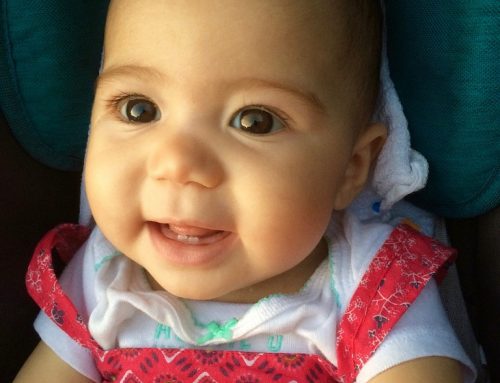A new mother has to deal with round the clock demands of infant care. In the process, she is often sleep-deprived and fatigued. Infant care can be overwhelming at times. It is common to feel anxious, overwhelmed or even sad at times when tending to a newborn. But a constant feeling of emotional low, anger or sadness is detrimental for a mother’s health. Worse, it could have a considerable and lifelong impact on her baby.
This post is about how a mother’s emotional health could impact her child in the short term and long term.
Parents’ role in early childhood development
Early childhood years are crucial to building a child’s motor, emotional, social, logic & language abilities. The period from birth to 3 years is crucial for the development of these skills [1]. Compassionate parental nurturing in these initial years is crucial. Also, using a careful & well-informed approach to childcare, to create a conducive environment for the child to nurture and grow, is of paramount importance. Thus, parents, caregivers, and the child’s environment usually pave the way for a child’s future.
“A Child’s first teacher is it’s mother” ~ Unknown
A mother usually plays a more prominent and primary role in the emotional & physical anchoring of a child. Her mental fabric & perspective in life has an indelible impact on her child. In his early years, he soaks up both her positive & negative vibes. Which, in turn, will play a significant role in shaping his future personality.
Effect of a mother’s temperament on the child
“The mother’s heart is a child’s schoolroom!” ~ Henry Ward Beecher
A happy and secure mother can raise a happy and secure child. A child reflects his mother’s emotional state, from a very early age. He will imbibe various qualities mirroring from his parents, primarily his mother. Positive attributes will turn into his strengths, and negative attributes will become challenges.
Some studies which involved observing brain images show that maternal love impacts the volume of a child’s hippocampus (the emotion & memory section in the brain) [2].
Childcare demands can tire out a mother leaving her overwhelmed, jittery, hypersensitive and sometimes even angry or sad. Baby blues are common in the first few weeks post-delivery, but if a mother is depressed, sulking or miserable for an extended period, a child faces the brunt of it. Adverse effects of a mother’s emotional status could be painful for a little child to grapple with and worse affect development of his physical, emotional, cognitive, social and language skills.
Experts share that mothers affected by postpartum depression are more likely to have children suffering from mental health issues like attention-deficit hyperactivity disorder among others [3].
How a mother’s emotional health can impact her child
A mother’s emotional health can affect a child physically and emotionally. Some of these effects last for many years.
1.Poor nutrition
Nutrition in infants:
Prolactin hormone is crucial for breastmilk production. Oxytocin hormone plays a vital role in the release of breastmilk during feeding. At the pregnancy stage, Prolactin starts preparing breasts for future breastmilk production. Postpartum, whenever baby latches to the breast (or you pump), the brain releases Prolactin and Oxytocin hormone. Prolactin signals breasts to produce milk. Oxytocin signals for the release of milk from the breast.
Emotional stress, depression is known to reduce levels of Oxytocin & Prolactin and hence affect breastmilk supply and breastfeeding [4][5]. Low supply or difficulty in breastfeeding affects weight gain and immunity in a baby thereby affecting the growth of an infant.
Nutrition in toddlers & older kids:
Babies, especially when they start solids, need a conducive environment for weaning. Introduction to a variety of staple food options, different textures, balanced meals to promote growth and development. And not just the food, babies need a happy environment at mealtimes. They imbibe what they see. Also, kids need some discipline to eat at a place without audio/visual distractions. All these factors help to promote nutrition but require some planning, efforts and a lot of patience.
A dispirited mother may not be inclined or not capable of providing/making healthy food for her child. Based on her emotional state, she may not be able to inculcate healthy eating habits. Her eating itself may be compromised due to the emotional state. These and such other factors may lead to tensed meal times (with pressure on the child to eat/finish meals), fussy eating (due to limited options, mealtime confrontations, or observing poor eating habits of the parents) or even refusal to eat. Sometimes a stressed mother may overindulge a child with food (sugary, or junk food) or introduce poor eating practices (visual distractions) to avoid mealtime problems [6]. All these factors can lead to under-nutrition or obesity in the child or worse, a lifelong struggle with food.
2. Delayed milestones
Studies have shown a distinct correlation between maternal depression and infant development.
The first 2 years of a child’s life are marked with rapid changes. This period is crucial for the cognitive, social, physical and emotional development of a child. A childcare environment not conducive for stimulating learning and development of these skills can result in delayed development and affect a child’s future. Various factors can lead to an unsuitable environment around a child. Mother’s emotional health is one such factor.
Mother’s emotional health plays a crucial role in the quality of childcare. Parents who are always stressed, especially a mother, with a stressful job, or suffering from stress/anxiety/depression, or with no childcare support, etc. can be a risk factor for developmental delays in a child, especially in the age group of 6-18 months. A mother’s emotional health can impact the stimulation required for learning and development and hence can delay the development of gross and fine motor skills, communication skills, cognitive skills etc. [7].
3. Poor social, emotional and cognitive conditioning
Social & emotional development:
When a mother is emotionally unsettled, she isn’t able to focus on childcare or constructively engage with her baby [8]. She may not be able to meet an infant’s need for social and emotional bonding. She may be distant, not have optimal physical contact with the baby, spend lesser or no time on verbal or facial interactions with the kid. Also, while a child is growing up if the mother depressed, she may also not expose her child to the fascinating world outside the home or provide opportunities for social interactions. In short, a mother’s stressed or depressed state can affect a child’s emotional and social bonding [9]. The effect can sometimes be lifelong as a child may grow up to be withdrawn, unable to make social contacts.
A child reflects his mother’s vibes. A constantly anxious, depressed or angry mother would make a child vulnerable to anxiety and other forms of emotional strain including stress. Kids who grow up in a stressed environment are prone to emotional, intellectual & behavioural problems. A mother who continues to shows anger or frustration towards the child or remains physically and emotionally distant, may make the child feel neglected or abandoned. A child may not be able to process this emotion but may become vulnerable to look for avenues of emotional bonding outside of the home.
Cognitive development:
A caregiver plays a vital role in the development of an infant’s cognitive skills [10]. A child is learning, imbibing and developing skills in the first 2 years of his life by observing things around and through interactions. A distant, depressed or sad mother may not engage a child in playful interactions activities like reading, talking, singing, etc.. Also, she may not be able to create or sustain an environment for nurturing these cognitive skills like using appropriate toys, social interactions, engaging baby in different activities etc..
4. Learning/behavioural challenges
A baby can flourish well when provided with the right environment for development. But constant neglect from primary caregivers clubbed especially with a child’s lack of attention towards learning aids can result in learning difficulties. A mother with psychological issues may fail to meet a growing baby’s demands for emotional, social and cognitive skills. This may lead to behavioural problems in a child [11].
Children of depressed mothers tend to interact less & may show signs of defying discipline. Such children may exhibit more aggressive & destructive behaviour as they grow up and their performance in school can be suboptimal [12].
5. Sleep problems
Sleep in an essential aspect of physical and mental development during infancy. Babies and even older kids sleep longer than adults [13]. Though it is a natural phenomenon, most babies need a conducive environment to get their daily quota of sleep. The primary caregiver needs to ensure baby’s environment is calm, and the baby is well-fed, the baby is clean, any reason for crankiness/irritability is soothed so that baby can sleep well. For infants the sleeping pattern keeps changing and growth spurts, teething, illness etc. can pose a challenge to put a baby to sleep or the duration of sleep. Also, many infants need the security of physical contact with the mother and hence need to be rocked, walked, breastfed or held close to their mother to sleep.
An emotionally disturbed mother’s condition may affect the quality of childcare. Hence, she may not be able to provide an environment for the baby to sleep well. Also, studies show that babies of emotionally stressed/depressed mothers are likely to cry often, wake up repeatedly through the night & clock significantly lower-than-average-hours of sleep. Sometimes such babies can clock as low as 6 hours of sleep in a 24-hour cycle [14].
Unfortunately, a baby who wakes up often or does not sleep well can trigger a vicious cycle. Frequently waking baby can aggravate mother’s fatigue thus increasing her stress and further affecting the child’s sleep.
Conclusion
Early years of a child’s life play a vital role in the physical, emotional, social, cognitive and language skills of a child. A mother is a child’s first teacher. A new mother’s mental wellbeing impacts her infant’s growth and development. Some of these effects in infancy or while growing up can last a lifetime.
If a new mother shows signs of depression, anxiety or constant sadness/anger, intervention is crucial. But, timely help from the experts for mental health can help a mother to recover from postpartum depression, anxiety or childcare related stress. Her recovery can help her focus on quality childcare to provide a nurturing and loving environment for her child.






Leave A Comment